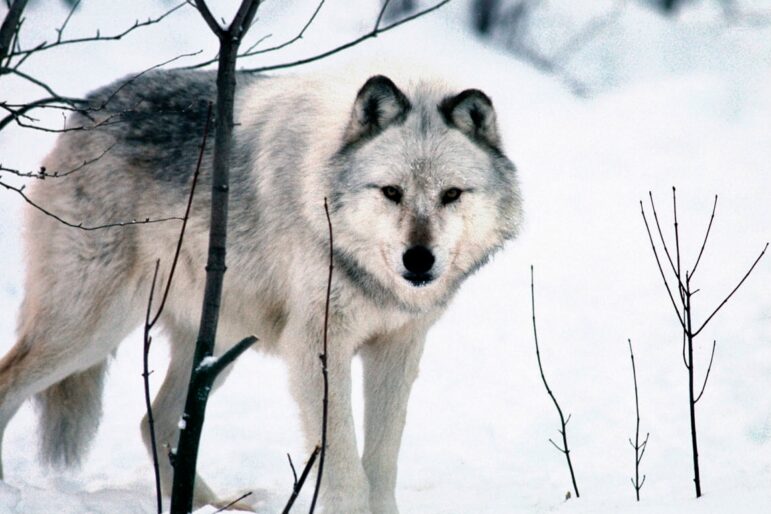
Department of Natural Resources
The Upper Peninsula is home to more than 600 wolvesBy KELSEY LESTER
Capital News Service
LANSING — The state’s Natural Resources Commission wants to know more before deciding whether to allow the hunting of wolves – if Michigan’s largest predator is taken off the federal endangered species list.
Although protected nationally, the state’s wolf population has stayed stable for the past 12 years. The number ranges between 600 and 700 each year in the Upper Peninsula. Nationally there are about 16,000 wolves.
They are one of the most controversial animals in the state, according to Brian Roell, a Department of Natural Resources wildlife biologist.
“People don’t like wolves,” he said. “Unlike any other wildlife we deal with, it’s a love-or-hate relationship for most folks.”
Many of those who support a hunting season say wolves kill deer, livestock and pets. Critics of wolf hunting say they want to protect the species and its crucial role in the state’s ecosystem.
And some people prefer that the state, not the federal government, have control over if, when and where wolves can be hunted since each state’s population varies.
In a recent presentation to the Natural Resources Commission, Roell addressed livestock depredation — which has occurred only once so far this year.
He said attacks on pets are “on the uptick.”
Wildlife ecologist Rolf Peterson of Michigan Technological University has studied wolf behavior for decades — and said the history of hunting them is significant.
“Well, wolves compete with people. The root of most of our mistreatment of wolves started thousands of years ago — biblical times,” Peterson said.
According to Roell, from settlement times until the 1960s, Michigan residents were paid bounties to kill wolves. It wasn’t until the number plummeted and they were “pretty much wiped out” did they come under legal protection.
Roell told the commission that if wolves were removed from the endangered species list now, it would take around nine months to finalize guidelines for hunting.
The big question is whether the wolf population has recovered sufficiently to be removed from the endangered species list, experts say.
Peterson said a lot of work would be needed to create a plan for hunting them.
There has not yet been a successful plan to remove Michigan wolves from the endangered species list, said Peterson. “The courts have tossed them back in their lap several times because of their failure to address this national presence.”
“Wolves have played an important role in mankind forever,” said Roell. “A lot of what we see in this anti-wolf propaganda — or the “Little Red Riding Hood syndrome” — is what you’ve been taught as a child that they’re going to blow your house down or eat your grandmother.”
Peterson said wolves have many natural benefits for the state’s ecosystem. They include reducing the number of deer-involved car accidents.
Although opinions on wolf hunting are polarized, Roell said he sticks to the science.
“It’s not my job to be ‘pro’ or ‘anti.’ It’s my job to present the facts as a professional wildlife biologist, whether the facts hurt me or help me,” he said.
Roell said, “There are many species that deservingly need to be on that list and need that added federal protection — wolves are not one of them.”